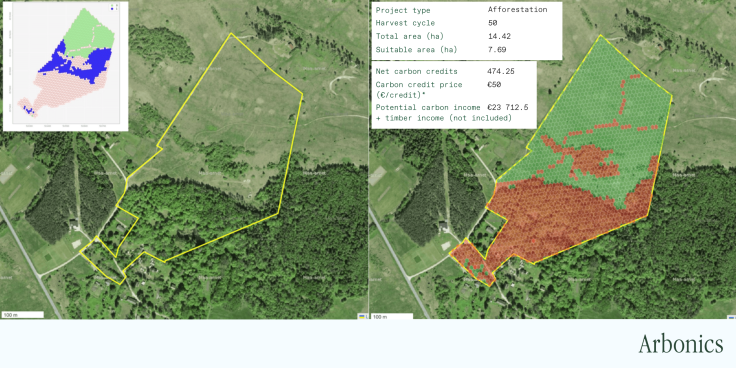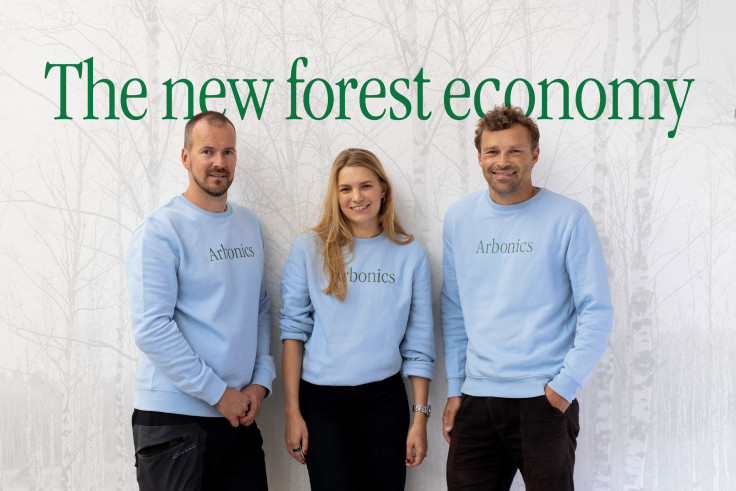Data reveals fourteen million hectares of land are available in Europe for afforestation
According to research by Arbonics, there are fourteen million hectares of land available in Europe for afforestation, which could balance out the emissions of everyone living in London and Berlin.

Analysis conducted by climate tech company Arbonics shows that there could potentially be 14 million hectares of land going to waste across Europe, which could be used to plant forests.
The data revealed that the European Union produced approximately 2.73 billion metric tons of carbon dioxide emissions in 2021 — an increase of over six per cent compared to 2020 levels.
An estimated 160 million hectares of land in the European Union alone is already forested and has the potential to store up to 73 per cent of the carbon dioxide emitted by the EU in 2021.
Yet according to Arbonics' data, the equivalent of all the land in Portugal and the Netherlands is still available for afforestation; the process of planting new forests on land which has not been forested before.
If this was successfully carried out, the emissions of up to 15 million Europeans could be balanced out every year, which is the equivalent of everyone living in London and Berlin.
This process could also add £2 billion to the European economy through carbon credits, granted to landowners across the continent.
Carbon credits are permits allowing the owner to emit one ton of carbon dioxide or the equivalent of another greenhouse gas. This has become one of the main ways in which carbon emitters offset emissions by investing in projects removing or reducing emissions from the atmosphere.
However, afforestation is not without its disadvantages. For example, some of the land used for afforestation could be used for alternative activities, such as agriculture.
Even if only the land that had been abandoned or identified as being too poor-quality for agriculture was used, this is still estimated to be in the region of 1.1 million hectares. This would be sufficient to remove up to 9.3 million tonnes of carbon dioxide per year, balancing the emissions of 1.5 million people, equal to the population of Munich.
In America, there are up to 60 million hectares of land available for afforestation and reforestation, which could capture up to 535 million tonnes of carbon dioxide per year. According to Arbonics, this would be equal to removing 116 million cars from the road.
Many environmental restoration projects have devastating environmental and social impacts, though.
An appropriately balanced combination of species depending upon location is necessary for these projects to deliver on their proposed aims. While natural forests offer rich biodiversity and defence against climate change, which is of significant value to human survival, many industrial plantations fail to provide the same natural benefits.
Professor Adrian Newton, Director of Conservation Ecology at Bournemouth University stated that if a natural forest is converted to a plantation, "entire ecological communities will be destroyed, species diversity will be massively reduced, and ecological processes will be irrevocably altered."

Arbonics recognises this and helps landowners in analysing and calculating the potential of their land, using their technology to monitor potential sites of afforestation.
Kristjan Lepik, co-founder and CEO of Arbonics stated: "Nature provides everything we need to turn the tide on climate change but unlocking the power and potential of nature is easier said than done. Landowners across the world are sitting on a wealth of resources that can benefit both the planet and their bottom line."
Furthermore, Arbonics' Carbon Earning Estimator allows landowners to estimate the potential carbon income of their land through afforestation.
© Copyright IBTimes 2025. All rights reserved.





















